Younes Mohammad is a photographer based in Erbil, Iraq, whose work is both a powerful reckoning with the long-lasting effects of conflict in the region as well as a reorientation of our perceptions regarding the everyday lives of his Kurdish community.
His most recent series, Open Wounds, originates from when he discovered he had PTSD and the lives of his Kurdish community were likewise forever altered. Open Wounds documents wounded fighters and their families in their homes. The survivors are deliberately photographed in front of black fabric voids in order to force a reckoning with the human cost of conflict. Though not entirely about pain, Mohammad also photographs these fighters’ families in order to remind us of the necessity for peace.

Emerald Arguelles: Can you discuss the earliest memory of photography you recall?
Younes Mohammad: In 2013, there were a lot of refugees from Syria in and around our city. There were many different camps, and I wanted to spend as much time as possible in these camps but getting permission was not easy. I had an Italian friend, a photojournalist, who told me about an Italian NGO looking for a driver able to speak English and bring their staff to the camps daily. He suggested I take this job. I went to the manager of the NGO and said I was a photographer, not a driver, but if she would allow me to photograph during the extra time that I was in the camps, then I would drive for them.
In the end, when she realized how in love with photography I was, she accepted. I became the NGO’s driver for about six months. I spent a lot of time closely understanding the life of the refugees in these camps and photographing. I will never forget that time.

EA: Your work really displays truths and transparencies that have been avoided, what inspired you to do that?
YM: I have very long, painful memories of being in the middle of multiple crises. I always want to talk through the photographs about the difficulties and hard lives of people and their situations.
For this reason, it’s necessary to get close to my subjects and see what I call the hidden face of truth. I try to capture and document these truths in order to understand them better and impart that understanding to others as well.


EA: Can you discuss the process of creating Open Wounds and the thoughts you had while working through the series?
YM: I covered the war against ISIS in northern Iraq and Syria. During that time, I was wounded twice, and one of those times it was very serious. After the war, I felt that I wasn’t normal anymore and doctors told me I was experiencing PTSD.
For two years I had a very difficult life. I felt like I was covered in war. Then I asked myself: what about everyone else, especially those who are fighting all the time? What is their situation now? How are they physically, mentally, emotionally? Have local and world communities done anything for them? Do they remember them? What about their kids and wives? How do they live now?
The idea of doing this project comes from those questions. I started to find and collect information about people who fought and were wounded and one by one I went to meet and interview them, and, in the end, take some pictures of them.
Day after day, one after another, I realized nobody outside of their world knew them and no one cared to talk about their lived realities. What I saw and heard every day was heartbreaking. Many of them were struggling with their pain in private. I was deeply ashamed but also more determined than ever. I promised myself and these families that I would tell everyone all I could about their pain and their stories and use my camera to hopefully disrupt the apathy of the outside world.
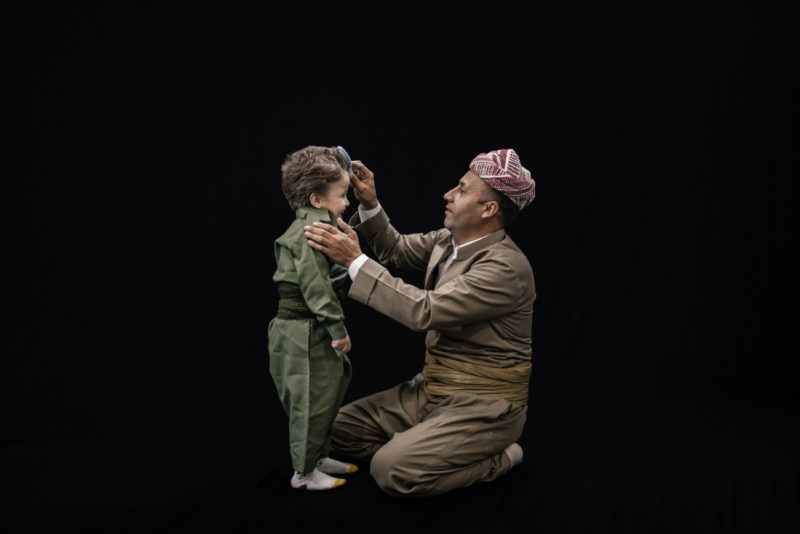
EA: Can you talk about your series In the Name of Religion, what did you want viewers to take away from this?
YM: In this project, I strongly believe that ISIS uses religion as an excuse to reach their organisational aims and they don’t care about people’s well-being. By bearing witness to the catastrophes ISIS caused, I try to show how following them will bring nothing but death, destruction and displacement.

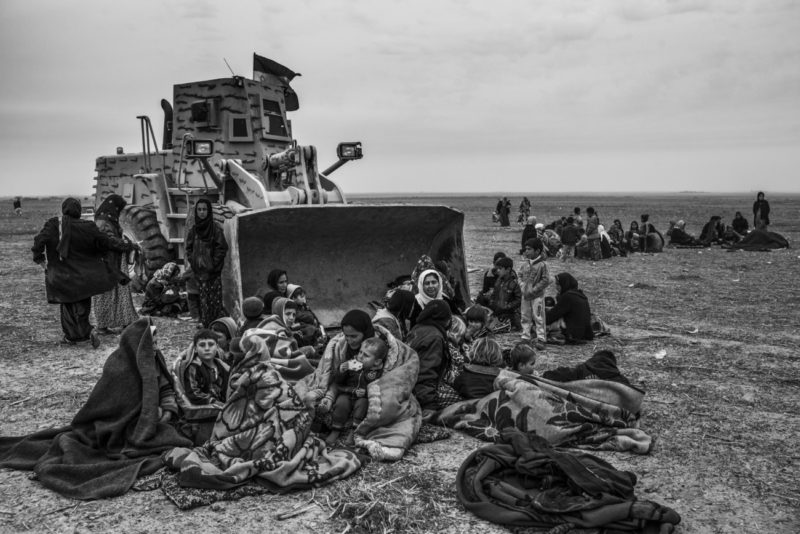
EA: What are your hopes for the future of humanity?
YM: The world is full of beauty. We are all looking to create a beautiful and comforting place in which to live, which we often call heaven.
But beauty cannot be made alone. What if we all worked together? How could we not make a big beautiful place to live together?
I hope we learn to accept each other with all our differences (which are the many elements of beauty) so we can make a heaven here in this world by ourselves for ourselves, not just have an abstract dream of it somewhere made by gods.
We can create a paradise for humanity, free from war and conflict, if we work together.
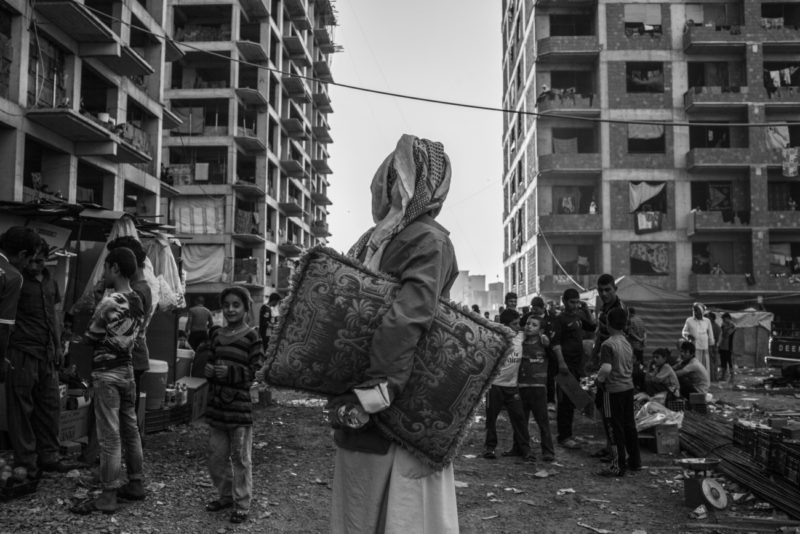
EA: In the subjects you photograph, what are the commonalities?
YM: Most of my work is related to war and its consequences. Unfortunately, my work confronts the pain, misery, and helplessness of displaced and bereaved people. The ugly and the cowardly face of war is evident in most of my works, but in a documentary and realistic way.
I wished my work was able to revel in beauty and friendship but it doesn’t. I can’t right now. I am trying to document what I am witnessing in this contemporary moment, and the human behavior I witness is often more bad than good.

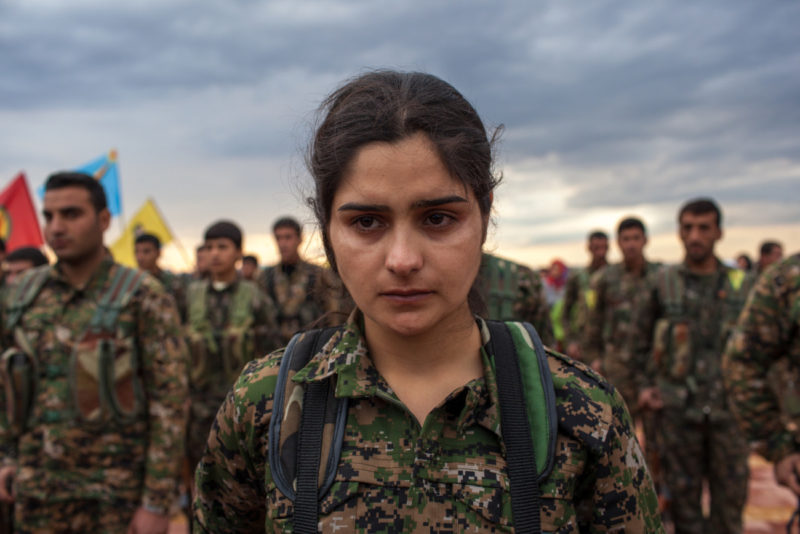
EA: In Walking Around, what are your emotions as you photograph the reality of many?
YM: I did not feel well and pain had exhausted my whole being. Seeing other people’s pain really bothers me and fear can often overwhelm me. I wish I had seen happy people during those walks, but unfortunately the echo of pain shouts everywhere.
On the other hand, I have hope that my photos can offer some kind of help or awareness. That is why I continue to document what has happened to these beautiful people in spite of the feelings of despair.
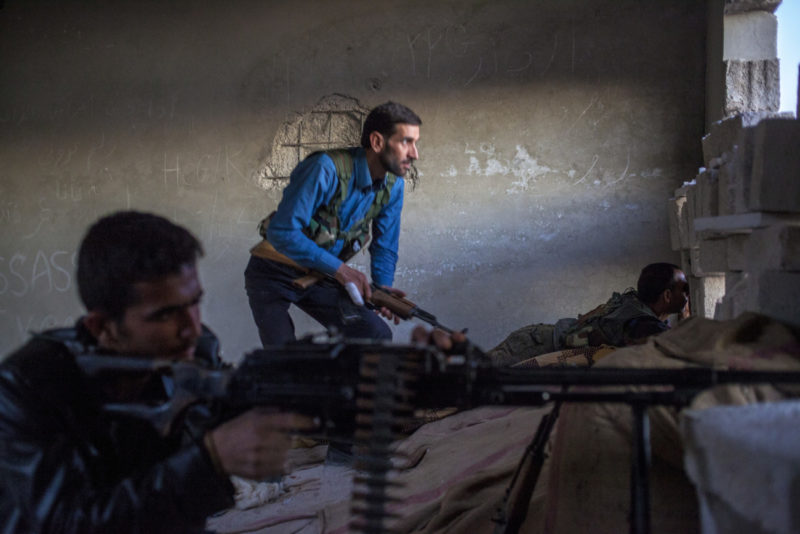
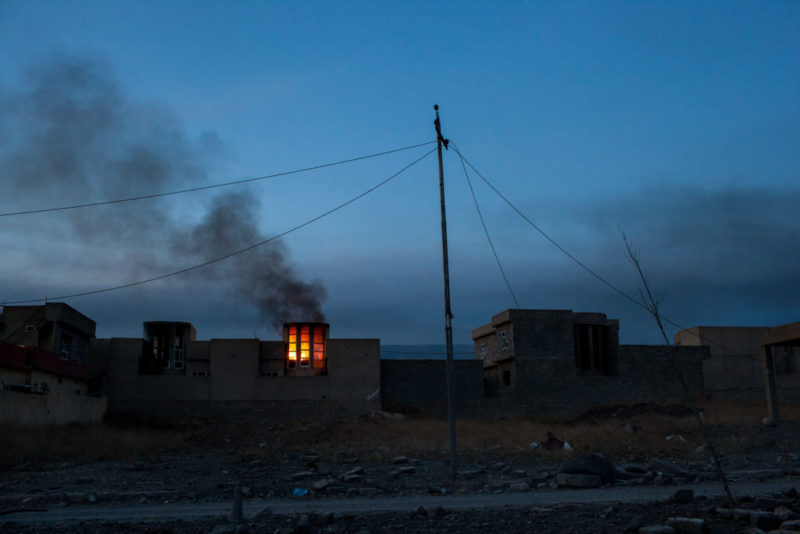

EA: What do you want viewers/readers to know about your work?
YM: I don’t want viewers to know anything about me or my work, I want them to think more about our mistakes and their consequences. I want them to try as much as they can to talk about peace and to be actively anti-war. I want them to start asking everyone to love each other because this is the only chance we have for lasting peace.
To view more of Younes Mohammad’s work please view his website.